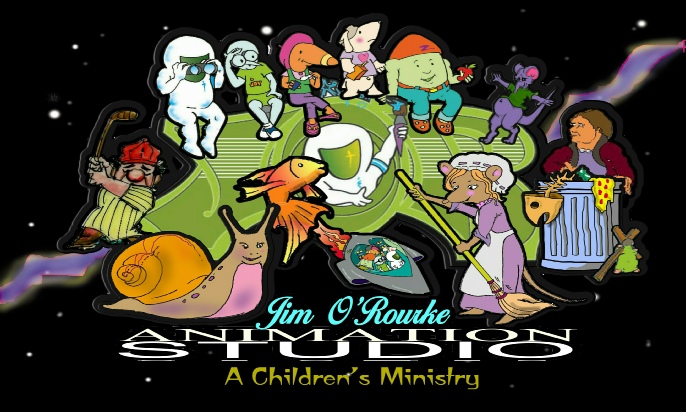EDUCATIONAL PROGRAM
ReadMe Educational Program
About:
This educational program was designed to be a building block format to teach that our relationship with God is the most important part of our daily life, and that we must spend time in God's word to nurture that relationship. This program has grown from simple picture cards into something that has become a far-reaching and comprehensive program that appeal to both the students and teachers alike.
The ReadMe building block educational program is based on the teachings of the Bible with the use of Graphic Novels, Lessons, and Flash Card formats which are utilized to stimulate student involvement and retention of content. The student lessons are designed using the content from the Digging Deeper Graphic Novels Series and Episodes with worksheets to encourage discussion and check for understanding. To further students' interaction each lesson provides several topics for discussion. Flash Cards are interactive and are used to support the messages. The stories in the series are focused on helping students build a close relationship with the Lord.
This series can be used effectively in churches, schools, and home schooling. The ReadMe Educational Program, i.e. Graphic Novel, Lessons and Flash Cards with Teacher’s Guide
are available on CD’s that can be printed in color or black and white. The Graphic Novel
and Lessons have optional 'numbered' dialogue balloons for an easy-to-follow option for younger children.
Benefit of the program:
Based on a proven track record the readers/students are reading Biblical principles to each other and have a willingness to know what is on the next page. Our shy ones become bold and are willing to share with the more aggressive ones who tend to become more polite and willing to be patient. This program works both in a group setting and as an individual study. All material is based on the teachings of the Lord.
ReadMe EDUCATIONAL PROGRAMS ELEMENTS:
Teacher’s Lesson Guide:
The lesson guide has been prepared to be quick-to-read, easy-to-follow, and very comprehensive. All the information is broken down by Bible verse and there are corresponding page number(s) to the Episode for easy reference to the dialogue.
The guide includes an overview for each lessons and it outlines the themes and main discussion points of the lesson. The lesson guide also references the REFLECTION, TIP and SUMMARY from the Flash Cards which is also the main text that is used in the dialogue.
The Guide provides you with background information that allows the class to move in a progression to complete the questions on the worksheet. There are suggested responses to the 'What Do You Think This Means' questions for discussion. Clue Words and their definitions are also provided along with answer keys for the Q & A worksheets that accompany each lesson. The Guide provide background information and insights with tools to help teach and answer questions that Episodes stimulate. There is guide for each individual lesson that can be printed out and used by the teacher in the classroom.
Lessons include the Q & A worksheet and Clue Word Glossary.
Key Elements:
CHAPTER MAIN POINT THE BIG QUESTION BIBLE UNDERSTANDING
WHAT WE WILL LEARN HISTORICAL CONTENT PROPHECY TIME LINE
LESSON OVERVIEW BACKGROUND NOTE
Lesson Provides:
CLUES-SOCIAL/ ETHICAL/SPIRITUAL IMPACT: These are examples that help build a relationship with the Lord. They are the fundamental teaching concepts for each of the student lessons.
CLUE WORDS: Words from the Bible verse that are used in the story to help with understanding and creating conversation are indicated in bold type.
THEMES: Each chapter of the Episode is broken up into themes. The theme title gives an idea of the general overview of what is happening in that part of the chapter.
WHAT DO YOU THINK THIS MEANS: This is a statement from the Bible verse to discussion in the classroom.
WHAT WE WILL LEARN: i.e. Daniel is able to resist compromise because of his relationship to the sovereign God. Daniel’s obedience was an expression of God's kingship in his life. Daniel's courage to proclaim God's message came from his allegiance to a sovereign God.
How To Use:
One of the main features of this program is when your establishment / organization purchases the Teacher's Edition on CD. It comes with all five elements, the Story, the Lessons and Flash Cards comes in both color and black & white PDF format so everyone can open and read on a computer. This is designed so you can print a copy from your computer and then make as many copies as you need for all your classes. You decide black and white or in color. You can also project for group viewing.
ReadMe EDUCATIONAL PROGRAM PROMOTES: (4 teaching principles)
1.The Daily Five: (A form of the Daily Five)
Encourages the desire to read to self, to others, and the ability to read out loud. The key is to listen to others read and to interact with other readers. There is also a willingness to embrace writing projects, all in a class room setting!
2. Blooms 21: As with Blooms 21, we started with a very creative way of teaching through storytelling, which engages the student's imagination to evaluating, analyzing, applying, and understanding which will lead to having the power to remember. Through a creative process we open the doors of discovery. Encouraging students to evaluate and analyze without them even being aware that they are starting to understand how to learn.
3. QAR (Question-Answer Relationship)
We use the different types of QAR questions. The "Right There" question are questions taken right from the text, a little easier to find the answers, but makes great discussion points. The "Think and Search" questions are questions requiring a reader to think and put different pieces of information together to come up with answers. The “Author and You” questions are based on information provided in the text but the student is required to relate it to their own experience. Although the answer does not lie directly in the text, the student must have read it in order to answer the question. The "On My Own" questions are questions students recognize that they must first consider the question before developing an answer.
4. Essential Questions and Guiding Questions
With open discussion of God’s examples, the students eventually discerns the knowledge
and is able to see how to apply God’s principles to their lives. With this new understanding, students can apply what they’ve learned to their lives with a richer appreciation of the beauty of learning as they absorb the Lord’s Word building an everlasting relationship with Him. As they are engaged with the entire process from start to finish, the students will make some significant decisions about the essential knowledge they have learned.
Teachings for Eternal Life.













